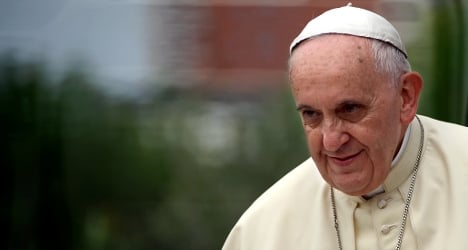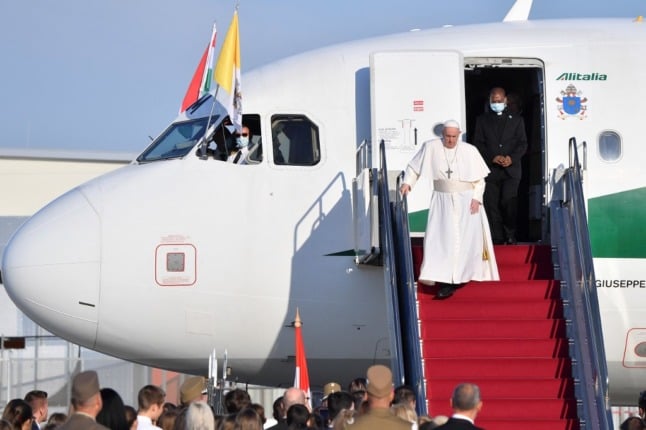The Argentine used a Christmas speech to cardinals, bishops and priests to list a catalogue of ailments plaguing the the very top of the Church.
He said the Vatican was riven with "existential schizophrenia", "social exhibitionism", "spiritual Alzheimer's" and a lust for power, all of which made for an "orchestra that plays out of tune".
The outspoken Pope also warned against greed, egoism and people who think they are "immortal".
It is not the first time the 78-year-old has taken on the scandal-hit, intrigue-filled Curia, and called for them to renounce gossip and act responsibly.
But rarely has he used such vivid terms to describe the sins he says afflict the heart of the Italian-dominated body, and the speech was very stonily received.
He slammed those who are slave to their "passions, caprices and manias" as well as those who "possess a heart of stone and a stiff neck".
He bemoaned the "scandal" caused by infighting and those who live a "double life" – their public one and a "hidden and often immoral" one.
He pitied those who, ridden with jealousy, "feel joy in seeing others fall down" and urged top official to help him find a "cure".
The Pope advised red-hatted cardinals full of their own self-importance to "pay a visit to the cemeteries" to look at those "who thought they were immortal, immune and indispensable!"
'Cold-blooded murder'
And with relish, he also returned to one of his favourite themes: the evils of gossip. Backstabbing by "cowards who don't have the courage to say things openly" is tantamount to "murder in cold blood", he said.
The diatribe will doubtless fuel the opposition to the reform-minded Francis which has been growing within the Church, according to Vatican watchers.
But religious expert Gianni Valente told La Stampa's Vatican Insider that he would also be applauded for "calling the diseases which plague his surroundings by their names."
His performance "foiled once more the stereotype of the 'Latin American martian' who is unaccustomed to the Roman and European 'complexities' with which his detractors and aspiring courtiers try to neutralise him," he said.
Francis was elected in March last year on a mandate to overhaul the Vatican and put an end to decades of infighting within the powerful but troubled body.
Since then he has establish a series of specialist bodies to tackle corruption and poor management, including the naming of eight cardinals from around the world to advise him on the Curia's overhaul.
Despite winning the hearts of many religious and non-religious people alike around the world, the Pope has also made enemies, particularly within the conservative arm of the Church.
Francis's attempts to kick-start dialogue within the Church earlier this year over a possible new approach to remarried, divorced people and homosexuals sparked an outcry in some quarters. His most vocal critic, the American cardinal Raymond Burke, was later demoted.
But Vatican watcher Andrea Tornielli said Monday's speech did not herald "the start of witch-hunting season", with other red hats ready to roll.



 Please whitelist us to continue reading.
Please whitelist us to continue reading.
Member comments